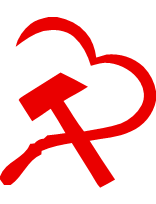"I need a verb (valorize) related to value, easily turned into a noun (valorization) and not confusible with valuate/valuation", probably
ComradeRat
"What counts as treats and what is necessary requirements" is a fun question. Two relevant Engels letter excerpts:
The English proletariat is actually becoming more and more bourgeois, so that this most bourgeois of all nations is apparently aiming ultimately at the possession of a bourgeois aristocracy and a bourgeois proletariat alongside the bourgeoisie. For a nation which exploits the whole world this is to a certain extent justifiable Engels to Marx, 7 October 1858
Becoming more bourgeois ofc means that it consumes more, has more treats, etc. So to Engels (and Marx didnt disagree), but 1858 some portion of what the proletariat had was already treats in their eyes.
Another letter is Engels to Kautsky, 12 September 1882:
You ask me what the English workers think about colonial policy. Well, exactly the same as they think about politics in general: the same as what the bourgeois think. There is no workers' party here, there are only Conservatives and Liberal-Radicals, and the workers gaily share the feast of England's monopoly of the world market and the colonies.
So by 1882, Engels re-asserts more strongly his 1858 beliefs. One wonders what he would have made of the post-1950s (i.e. post great acceleration and consumer society) workers in the global north. What does this mean in terms of political action? Marx's letter to Engels from 1869, December 10 may shed some light:
The way I shall express the matter next Tuesday is: that, quite apart from all ‘international’ and ‘humane’ phrases about Justice for Ireland — which are taken for granted on the International Council — it is in the direct and absolute interests of the English working class to get rid of their present connexion with Ireland. I am fully convinced of this, for reasons that, in part, I cannot tell the English workers themselves. For a long time I believed it would be possible to overthrow the Irish regime by English working class ascendancy. I always took this viewpoint in the New-York Tribune. Deeper study has now convinced me of the opposite. The English working class will never accomplish anything before it has got rid of Ireland. The lever must be applied in Ireland. This is why the Irish question is so important for the social movement in general.
So in summary: Marx and Engels would likely look at a lot of stuff we consider necessities as treats, but neither give any hard prescriptions. Marx by 1869 seems to have realised that treats from colonies/imperialism were perpetuating the system and so believed that the English working class needed to be rid of Ireland (I would assume india, etc too, but that wasnt the focus of the internqtionale meeting) before it could accomplish anything.
Edit: regarding what the capitalist cares about, this will be revealed throughout the book (startijg especially in ch10)
I believe he is hinting that the economists diguise the fact that their labour isnt actually useful (and is in fact socially detrimental) with the category of service. Reading fn16 alongside fn17 makes this especially clear (Marx is calling the economists servants of the devil / the devil again)
I can say with some confidence (happy to be shown incorrect) Engels doesnt pick up the ball Marx dropped. Origin of the Family does not represent picking this ball back up, bc the balls both dropped were
1."did not realise that the exploitation and subjugation of women intensifies under capitalist mode of production"
-
"did not point out the devaluing of female labour-powers and the systemic dismantling of gender equality in the lower classes going on at the time they were writing"
-
"placed reproductive labour outside of their analysis at a time when capital itself was increasingly concerned with controlling women's reproductive labour".
Origins of the Family is also notably based on the same books Marx read, but Engels' positions are often less nuanced than Marx's in his excerpt notes. As far as I remember, it does not touch on the above three points.
Federici's essay in Musto's Capital 150th anniversary book (cant remember the title) gives a good summary of how Capital!Marx messes up.
Marx's metaphysical justification is at the beginning of chapter 7 (the paragraph about bees and spiders vs. architects and weavers).
His differentiation is already mushy and metaphysical (and false; spiders, bees, arcitects and weavers all start with plans, but will change the plan if the conditions change), but it particularly collapses later given his discussion of labour-powers' deformation under division of labour in manufacture and machinery. All the points he notes about human labour power's uniqueness stop being true in manufacture and machine production.
Marx will also point to instances of human, horse and ox labour being interchangeable in manufacture and machine production, further eroding the justification presented here
This is a very good question.
Hospitals produce service(s), which is a type of commodity. They indeed buy doctors', nurses', janitors', etcs', labour powers, which are excercised productively in producing healing or cleanliness, which are considered socially useful and hence use-values.
Your points are good, I just wanna further complicate it (particularly wrt stone age, virgin materials and labour)
Should very much note that the "output>input chains" that get longer through the centuries are human production chains, production chains under human management, control and understanding. The chains are predicated on the existence of the 'natural world' (the uncaught fish in ch7fn7) which is the result of millions of years of evolutions and developments and ecological relationships which even today we do not fully understand.
The supply chains' operation also destroys this 'natural world' on which it's premised; oil is limited, ore veins dry up, forests are cleared, soil is exhausted, etc. This destruction can be shifted/alleviated (e.g. from the 70s, pollution reduction in the north was aided by sending the dirtier production south; the ever increasing use of fertilizer to maintain crop yields), but is as Marx notes intrinsic to the capitalist mode of production.
One reason it is intrinsic in my opinion is that capitalism does not view 'nature' as producing value.(1) Hence, value, material generally, extracted from nature require no compensation. As Marx says in ch2, if commodities "are unwilling, [man] can use force; in other words he can take possession of them".(178) It doesn't matter if it's a rock, plant, wild donkey or anything else: if a commodity has no owner, it's "free game". Marx alludes to the fact that, women, for instance, may be commodities in ch2fn1, but the point isn't developed further here (or anywhere else in Capital, tbh. Marx dropped the ball on feminism.)
In ch2 Marx further points to the fact that, for owners of commodities to deal with each other as commodity owners, to interact through their commodities; "their guardians must...not appropriate the commodity of the other, and alienate his own, except through an act to which both parties consent. The guardians must therefore recognize each other as owners of private property."(178) Because, e.g. a tree, is not recognized as the owner of private property, as a commodity owner, a member of civil society, in a word a legal person it is therefore itself a commodity. In chapter 2, brief allusion to women-as-commodities aside, the question of what is and is not a commodity seems simply to be "is it a human or not".
In chapter 3 and 6 this is further complicated by mention of slaves, humans who are commodities. In the inverse of the conditions for the sale of labour-power we see the conditions for the sale of human beings:
"In order that [labour-power]'s possessor may sell it as a commodity, he must have it at his disposal, he must be the free proprietor of his own labour-capacity, hence of his person. He and the owner of money meet in the market, and enter into relations with each other on a footing of equality as owners of commodities, with the sole difference that one is a buyer, the other a seller; both are therefore equal in the eyes of the law." (271)
A person can thus be enslaved when they are not the legal equals. This can mean, as in e.g. absolutist France, "The Rights of Man" just don't exist, no one is equal, or it can mean, as in Yankland, that black people and natives don't count as "real" humans. Such people are, rather than being commodity-owning members of civil society, part of civilization, uncivilized. They and their property are treated as natural resources; gangs of whites can and did go about with guns in Yankland abducting black people for sale, robbing and massacring native villages and looting graves and ceremonial sites, digging up and farming medicine and hunting places, etc. This is the whole basis of primitive accumulation, which will be the focus of part 8 of the book.
The supply chains thus appear to begin (and Marx begins his analysis presuming) with extraction, but they begin earlier and endlessly circulate in and out of the sphere of 'social production' which is Marx's focus.
(1) Marx seems to sometimes think abstract human labour is physiologically and intrinsically different from animal labour (e.g. page 284 where he creates a metaphysical justification for this). I disagree, and think it weakens his argument to have such metaphysical ideas (and such metaphysical ideas obscure how capital-patriarchy labels e.g. housework as not-work and expropriates the products (reproduced labour-powers) as a natural resources.)
Yeah one of the things that amazes me most about Marx when I read about him is how much he read and made notes on. He seems to have started the habit when he went to university in Berlin (~1837) and just never stopped.
Regarding the grossness and Marx describing it, yeah as we get further into Capital Marx will get more and more explicit about how much stuff sucks (particularly as Marx kicks down the door to the realm of production)
Marx isn't anti-religion because "lol man in the sky silly". Marx is anti-religion because it is the product of an inverted world, a class society. Marx believes that, if class society is abolished, if the topsy-turvy (this is the word he uses in e.g. "On 'The Jewish Question'" or the rest of "Contribution to the Critique of Hegel's Philosophy of Law") world is turned upright, religion will wither away into nothing. Marx believes this is only possible when all the social relations that underlie society are laid bare in an understandable form (i.e. with communism), and that it will not disappear until the topsy-turvy material world disappears.
As Marx states in the former essay, Marx doesn't believe religion can be abolished by decree (and he points out that state secularism is often just reskinned Christianity). In both essays, Marx actually details how the state itself, money itself, are religions; for Marx religion is the work of human mind alienated from humans and dominating them.
In the full quote (which emizeko posted) Marx outright refers to religion as the general theory of this world (i.e. the topsy-turvy world), as an encyclopaedic compendium. Elsewhere (either in Contribution to the Critique or in On the Jewish Question) Marx refers to religion as a register of the theoretical struggles of mankind. Based on Marx's usage of various bible quotes and themes in his work (even Capital), it seems likely that he treated religion as he would e.g. liberal economists or members of parliament (i.e. with critical analysis and an eye towards useful stuff for his own critique)


Chapter 10